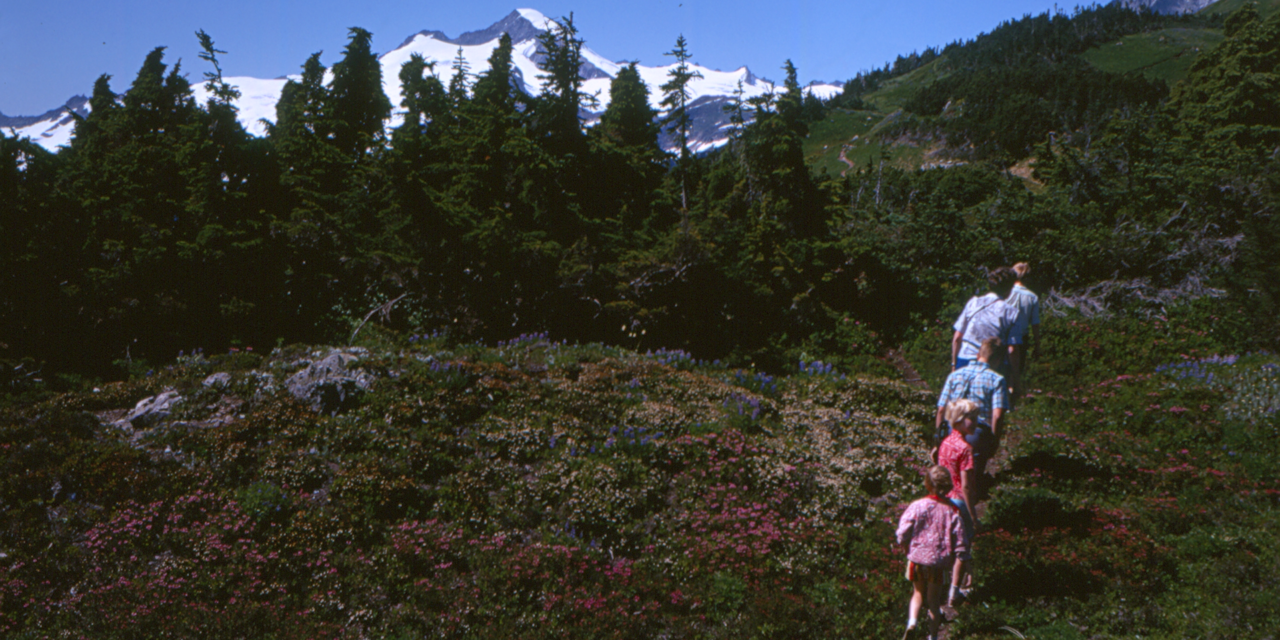The following essay and photos were republished with permission from The Ecological Disciple, which is “a community of writers and readers learning to follow Jesus from the ground up.”
My family had a ritual when I was growing up. A couple of weeks after any vacation, we would gather in the living room, set up our projector screen, turn off the living room lights, and watch as my dad projected the several rolls of slides that he’d just picked up from the camera store where his ektachrome film had been processed.
My dad took great pictures—and a lot of them! I estimate the number to be more than 25,000. He mostly took scenery pictures; if people were included, there was usually a notable backdrop behind them that they were helping to frame.
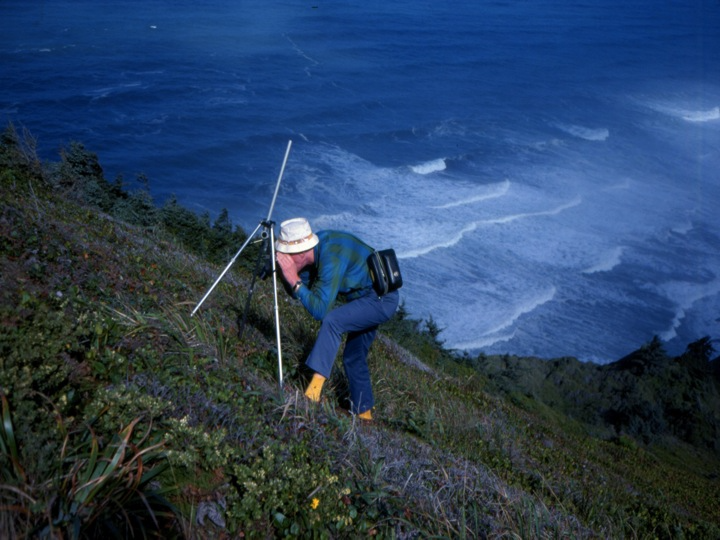
Loren Sebring of California Coast, Mary Pat Sebring
Our ritual of slide-watching was a way of remembering shared experiences, deepening our admiration for the world we live in, as well as enjoying and appreciating my dad’s photographic artistry.
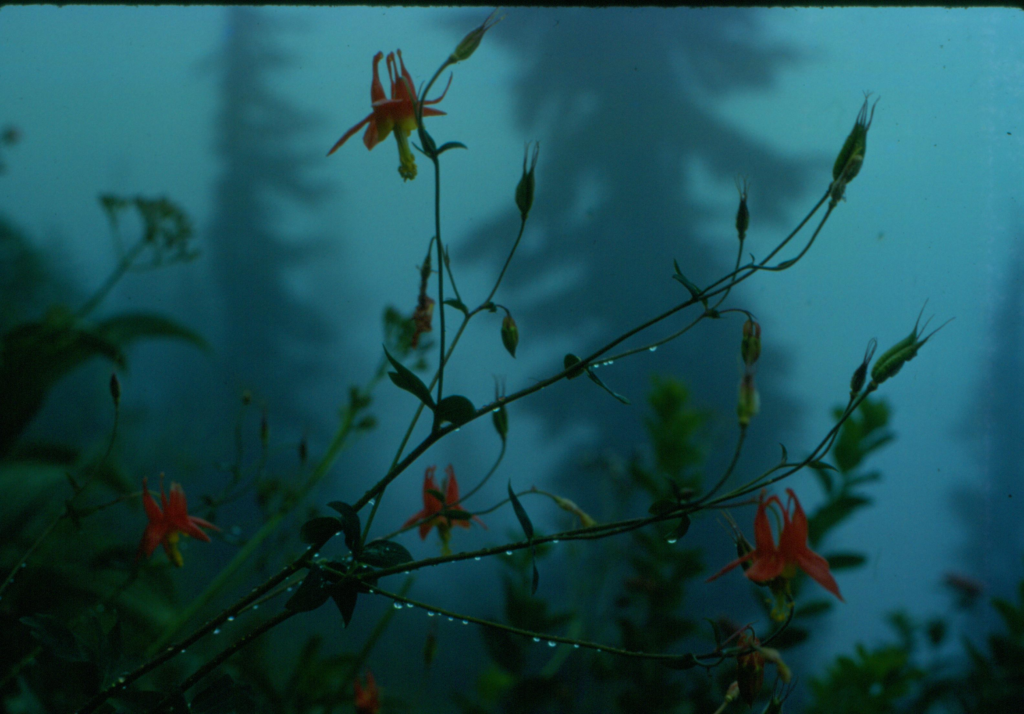
Columbine in Rain, Loren Sebring
Each slide brought back a shared memory to my family—a stiff wind blowing ocean foam down a shoreline, the strong scent of wildflowers on a mountain hillside, a marmot briefly perching on a rock before scampering into a dark crevasse. They also brought back memories of waiting while my dad took the pictures—as he crawled up the side of a canyon to get a good picture of a waterfall or while he snapped several shots trying to get the right timing of a wave crashing over a rock.
As someone who has developed similar tendencies, I now better understand that desire to preserve on film an intriguing pattern of water or sand, the progression of a pink glow into yellow. It’s a way of connecting to the world I live in, a form of admiration and love.
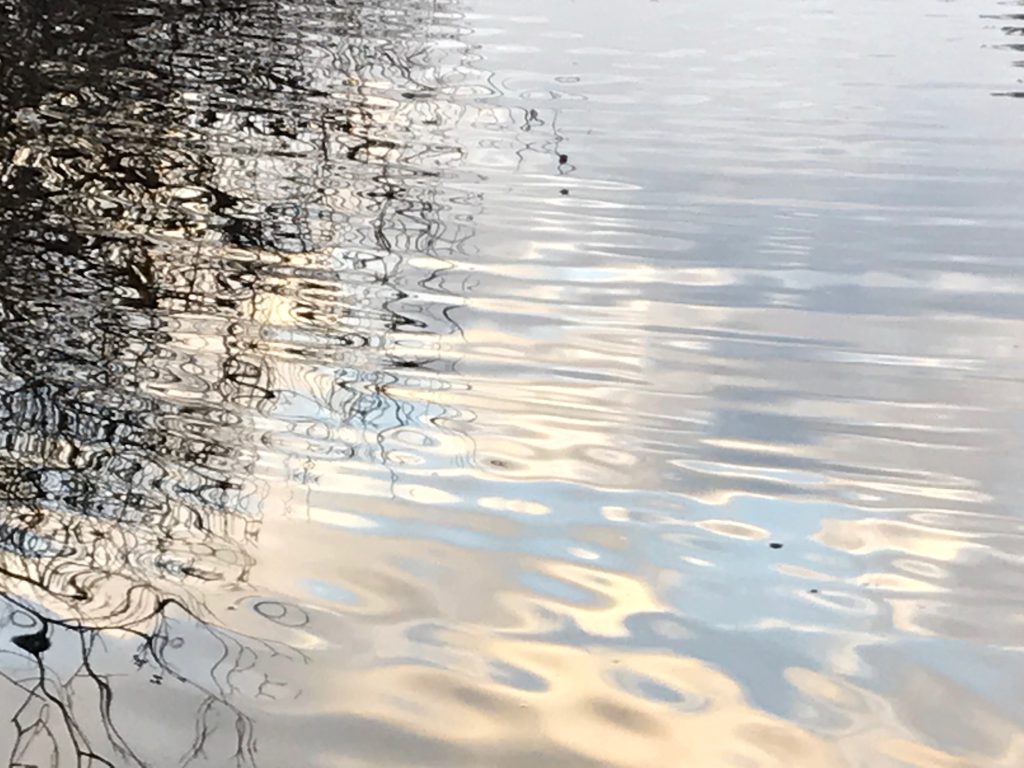
Larsen Lake, Louise Conner
It’s a tricky balance. Being consumed with recording an event can actually make you less present, leaving you feeling like you’ve missed the event itself in the process of recording it! Or if capturing the event becomes too important, it might seem like it hasn’t truly happened unless you come away with proof of its occurrence on film (or phone).
But photographing something can also create connections with the place you find yourself when it causes you to slow down, observe carefully, and respond.
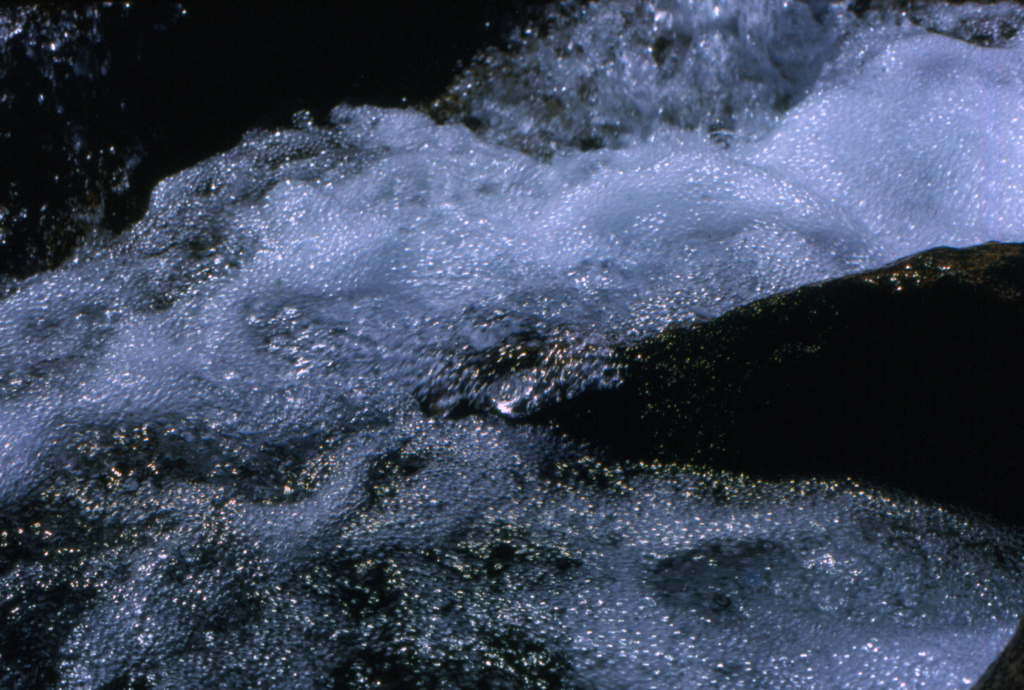
Water Bubbles, Loren Sebring
This art of creating connections with the world around us isn’t confined to taking photographs—all kinds of artists do it. Painters do it when they sit down with an easel in front of a beautiful scene. Potters do it when they transfer patterns or colors they see into a new form. Poets do it when they sit with a pad of paper to translate something they’ve experienced into words. Basket makers do it when they weave reeds or grass they have found into a form that they carry away with them.
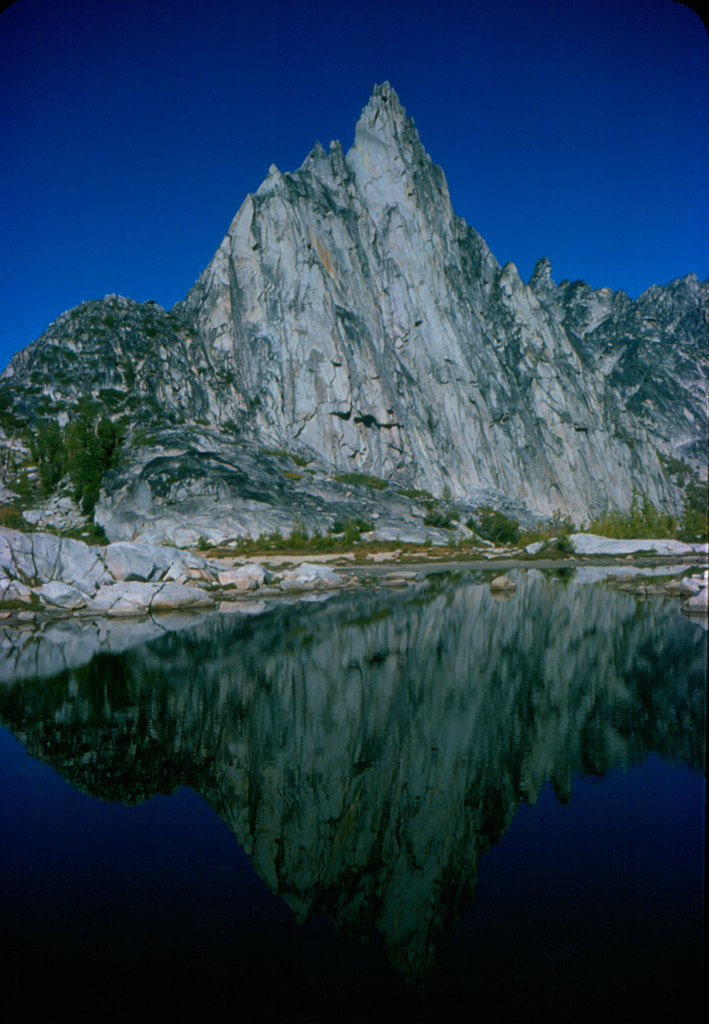
Prusik Peak in Enchantment Lakes, Loren Sebring
The point is that the discipline of art creates space to form a deeper connection with the world we live in, one that is whizzing by our car window at freeway speed. We have to stop driving in order to create art. It’s an opportunity to listen well and be drawn into a bigger story.
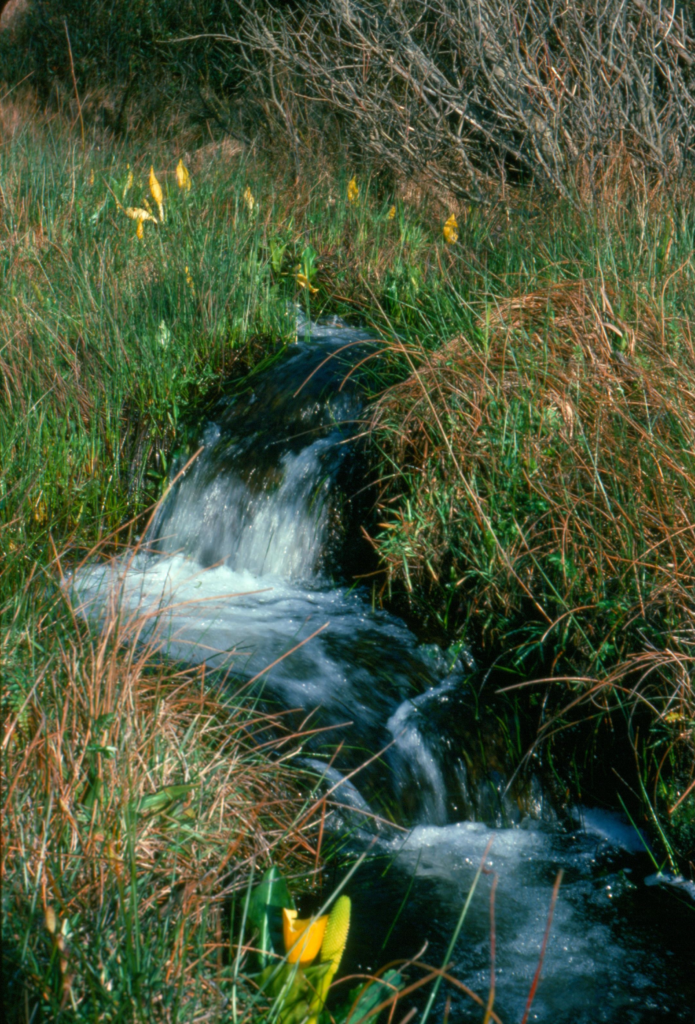
Stream with Skunk Cabbage, Loren Sebring
I recently returned from a vacation in which I found myself in many places where my parents had been years before—both with and without me. The felt connections to both my parents and those places were stronger because of the photographs that had connected us all together, both reinforcing memory and actually creating memories when I hadn’t personally been there with them. There was companionship in those places even in my parents’ absence.
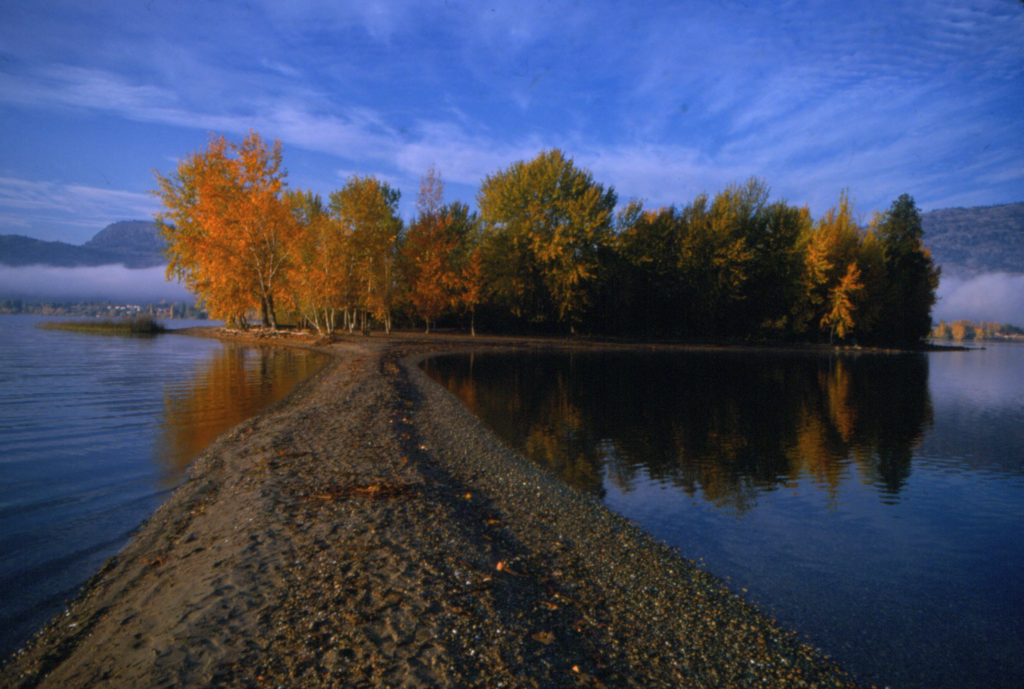
Osoyoos Lake, Loren Sebring
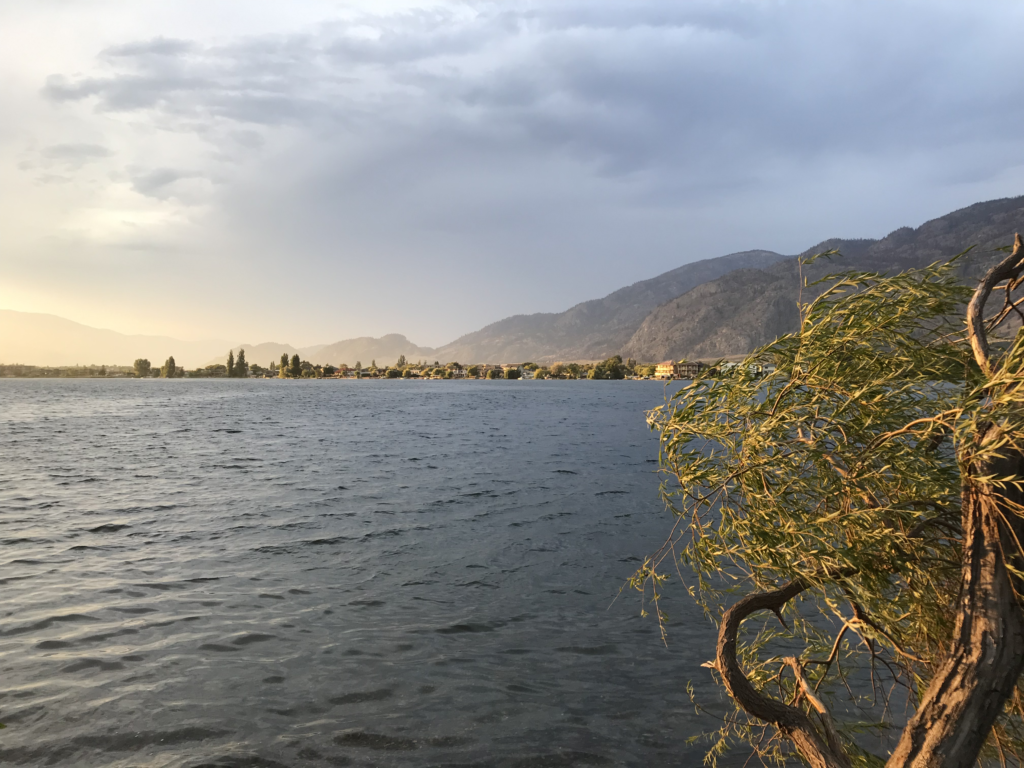
Osoyoos Lake, Louise Conner
I am grateful for the value my parents put on paying attention to this beautiful world. I am grateful that they showed me how to love this creation that I am privileged to be part of. I am also grateful for the ways I am learning to love it as a follower of Jesus—recognizing God as the giver of that gift and learning how to better care for that gift in new ways.
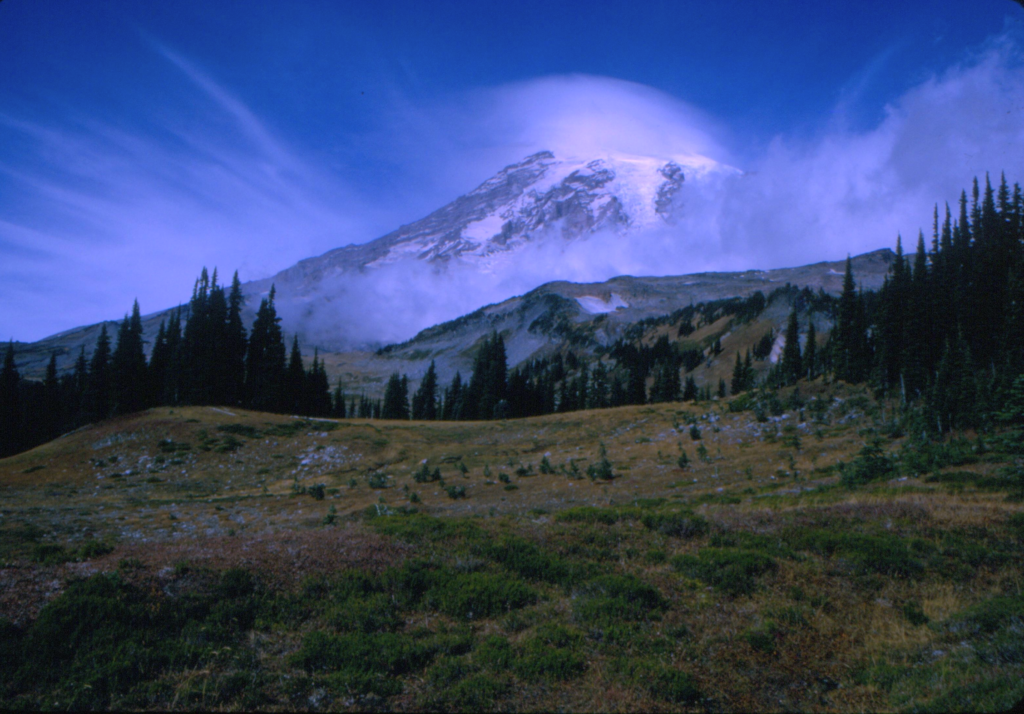
Mt. Rainier, Loren Sebring

